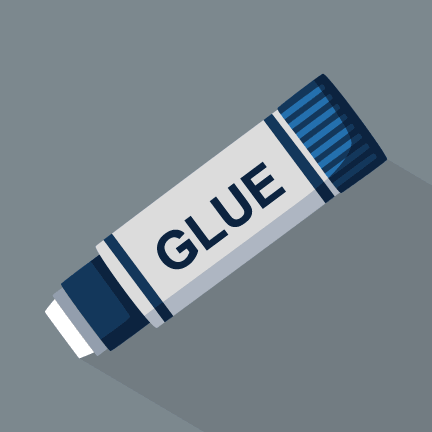
Cash: The Glue That Holds It All Together
Have you ever gazed upon an heirloom-quality piece of furniture, a new gourmet kitchen, or a stunning sports car and thought to yourself, “The glue-work is simply exquisite.” Probably not. I know I haven’t. But what would that object look like if it wasn’t fastened together correctly, or at all? It’d be little more than a pile of individual parts that aren’t much use to anyone. The glue, the adhesive, the fasteners get so little credit for what they do. I’d like to talk for a moment about the glue that holds a retirement plan together.
Interestingly, cash often gets a bad rap. Investors who hold cash in their bank accounts and investment accounts will often express the frustration they feel by having “too much cash” that isn’t working very hard because it’s not earning much interest. That’s a very fair concern. Idle money can certainly become a drag on long-term returns when compared to owning stocks, for example, and therefore begins to feel that it needs to be deployed into a higher-yielding investment. I couldn’t agree more. But what if we took a closer look at what “idle” means in this context.
The definition of ‘idle’ is: without purpose or effect; pointless (source: Dictionary.com). But is cash that’s not invested actually without purpose or effect, or pointless? I’d like to suggest that we celebrate the cash in our lives and within our plans, and give cash the credit that it’s due.
Cash on-hand allows for:
- Liquidity for short-term spending needs and emergencies.
- Investors to remain focused on long-term objectives with the money that’s invested in risk-based markets, putting less pressure on the portfolio for income needs during temporary yet inevitable market declines.
- The pursuit of new ideas and adventures like starting a new business or taking an unplanned trip.
- Carrying higher deductible insurance policies. More cash on-hand means you can ‘self-insure’ a much higher deductible, which means lower insurance premiums year after year.
- Investing opportunity in the markets. When the stock market declines, having cash ready and available means you can buy quality companies on the cheap. Some call this “keeping dry powder”.
- Lower stress and improved physical health. Studies have shown that having substantial cash-on-hand has a quantitative effect on a person’s happiness level. If cash in the bank makes for happier people, then happier people become healthier people. Financial margin in the form of cash savings, therefore, can improve one’s health.
There are so many more ways to sing cash’s praises but we’ll stop here. I share all of this because some people seem to feel guilty or believe they should feel anxious about the fact that they have cash; at least when they come to see us. The assumption that financial and investing people will judge harshly the keeping of “idle cash” is just that, an assumption. I hope this helps to communicate that not all of us are mad at large cash balances. To the contrary, seeing a meaningful amount of cash in a person’s bank account is a relief in a lot of ways. Sure, there’s an amount of cash that’s too much, but that’s a very personal decision that we’ll help you sort out. Until then, fly your cash flag proudly! After all, you deserve financial peace and quantifiable improvements in happiness; we all know there’s enough going on out there to bring us down. Cash can be the glue that holds it all together, so let’s agree that cash isn’t everything, but it certainly is something.

